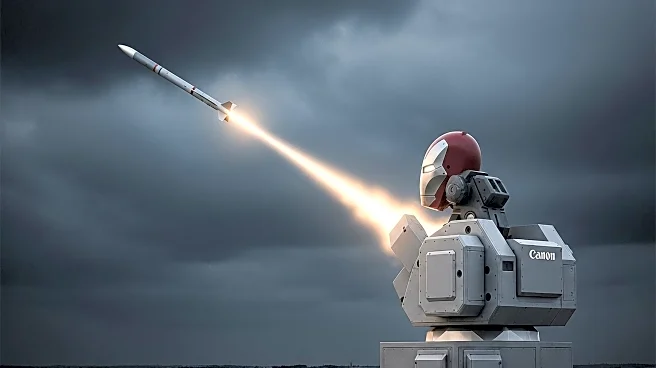What's Happening?
On September 21, 2025, two projectiles were fired from the northern Gaza Strip towards Ashdod, marking the first such attack since April. The Israeli Defense Forces (IDF) reported that one projectile was successfully intercepted, while the other exploded in an open area, causing no casualties or damage. Hamas has claimed responsibility for the launches. Sirens were activated in Ashdod and the nearby community of Nitzan, alerting residents to the incoming threat. Magen David Adom, Israel's national emergency medical service, confirmed that there were no calls regarding injuries or damage. Police reported sightings of rocket fragments in the Lachish region.
Why It's Important?
The projectile attack underscores the ongoing tensions between Israel and Hamas, highlighting the fragile security situation in the region. Such incidents can escalate into broader conflicts, affecting regional stability and international relations. The interception of one projectile by the IDF demonstrates Israel's defense capabilities, but the successful landing of the second projectile in an open area raises concerns about potential vulnerabilities. The attack may influence Israeli public opinion and government policy regarding security measures and military responses. Additionally, it could impact diplomatic efforts aimed at achieving peace in the region.
What's Next?
The Israeli government may consider increasing military presence and surveillance along the Gaza border to prevent future attacks. Diplomatic channels might be engaged to address the situation and seek de-escalation. International stakeholders, including the United Nations and neighboring countries, could play a role in mediating discussions between Israel and Hamas. The incident may also prompt discussions within Israel regarding defense strategies and potential retaliatory actions.
Beyond the Headlines
The attack highlights the ongoing humanitarian challenges faced by civilians in Gaza and Israel, as continued conflict disrupts daily life and exacerbates existing socio-economic issues. The international community may increase pressure on both parties to engage in peace talks and address underlying causes of the conflict. Long-term solutions will require addressing political, economic, and social grievances that fuel hostilities.










